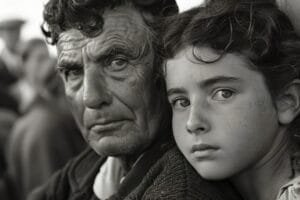Desert Challenges: A Story of Resilience and Transition to a Green Economy
Under the blazing desert sun and in the heart of cities that never sleep, the greatest battles of our time are unfolding. Environmental challenges in our region are no longer just topics at international conferences; they have become a daily reality that demands a language spoken by both the land and its people. In the old neighborhoods, water was once measured like gold, a precious treasure of the days gone by.
Today, the equation is far more complex: how do we secure water and food when desertification is swallowing green spaces, one piece at a time?
This is not a story of a passive victim of climate change. It is a story of thoughtful scientific resistance, beginning in research labs and finding its way into the hands of farmers who treat the soil like engineers—carrying the legacy of generations along with the insight of modern technology.
Look at the Arabian Peninsula’s desert, once a harsh witness to the ravages of thirst. Now, on its edges, desalination plants and solar panels stand tall—a scene that captures the spirit of our age: turning challenges into opportunities. Universities from Abu Dhabi to Casablanca have sparked projects ranging from soil moisture sensors and water recycling to renewable energy innovations, funded by governments that recognize the era of total oil dependence is coming to an end. This is not about official speeches or flashy slogans.
Behind every Arab initiative to produce local food, build sustainable cities, or restore traditional water systems with a digital spirit, there’s a human story—people drawing hope for the future from the fears of today. In the quiet of laboratories, the hustle of markets, and a father’s determination to secure a better future for his children, this gradual transformation is gaining a strong foothold in the Middle East.
From the heart of this story emerges an urgent need to open a new chapter: How do we build a green economy and reduce oil consumption? Has investing in solar, wind, and green hydrogen shifted from an ambition to a national necessity essential to the region’s strategy? Will we soon see Arab cities where cars, buses, and factories run on alternative energy, and seawater becomes a lifeline instead of competing with scarce rainfall?
The answer is close, but it depends on our resolve and ability to turn today’s challenges into tomorrow’s resources; a new question takes shape on the ground: What will our economy and society look like when “green” is no longer a choice but a way of life and a condition for survival?




